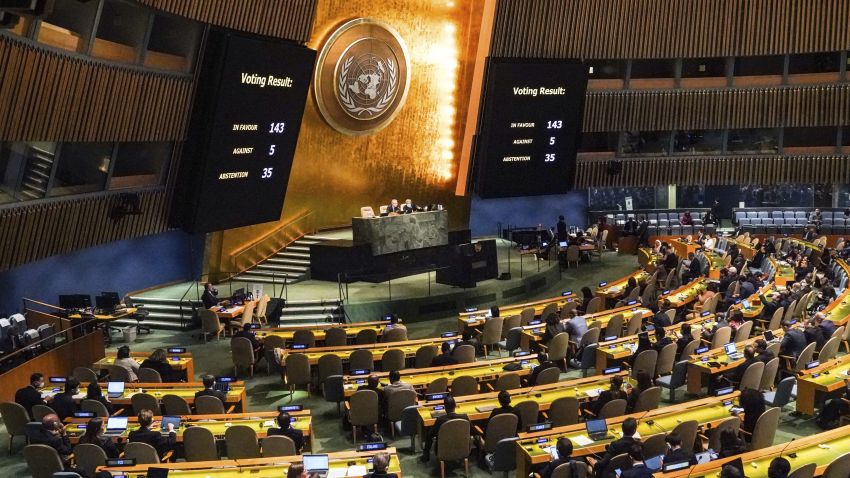The United Nations’ ability to carry out its mission has been severely constrained in recent years by its member states. And many of its agencies are now facing funding shortages that could severely curtail their work. In fact, multilateralism of all stripes is under strain, from the International Criminal Court to the World Trade Organization.
The United Nations is perhaps the most prominent manifestation of an international order built on balancing sovereign equality with great-power politics in a bid to maintain international peace. But its capacity to do that—and to meet its other objectives, which include protecting human rights and delivering aid—have been severely constrained in recent years by its member states.
The real power in the U.N. lies with the five veto-wielding members of the Security Council—the United States, Russia, China, Great Britain and France. And they have used their positions to limit the institution’s involvement in major recent conflicts, including civil wars in Syria and Yemen. But perhaps no two global crises have underscored the Security Council’s limitations more than Russia’s invasion of Ukraine and the Israel-Hamas war in Gaza. Because of its veto, Moscow has been able to block all efforts at the council to condemn or intervene in a war of aggression that clearly violates the U.N. Charter. And the U.S. has done the same to stymie efforts by the council to call for a cease-fire in Gaza to alleviate the suffering of Palestinian civilians there.
Beyond the Security Council, the U.N. has sprouted additional specialized agencies to address specific issues—health, women’s rights and refugees, among others—that have met with varied degrees of success. In some instances, they have been able to galvanize global action around urgent goals, like UNAIDS’ work curbing the international AIDS crisis. But many of those agencies are now also facing funding shortages that could severely curtail their work.
In addition to the U.N. and its agencies, multilateralism of all stripes is under strain. In the absence of U.S. leadership and at times in the face of U.S. obstructionism during former President Donald Trump’s term in office, many multilateral efforts floundered. Heightened tensions and strategic competition among the U.S., Russia and China have also blocked efforts to address crises, even where their interests converge, as in Afghanistan.
President Joe Biden promised to adopt a more conventional U.S. approach to multilateralism and America’s global role, and his administration followed through with efforts to correct course on both scores during his term in office. But whether that will be enough to shore up the international order remains to be seen. It is unclear whether the WTO will be able to reassert itself in the face of rising economic nationalism and protective tariffs, for instance. The International Criminal Court, which could play a vital role in pursuing charges of war crimes emerging from the wars in Ukraine and Gaza, is under pressure from all sides—including the United States.
Other multilateral bodies are finding themselves ill-equipped to exercise any influence, as global powers are increasingly interested in competition rather than cooperation. Forums like the G20 were designed to leverage the economic power of rich countries around a unified response to international crises, but there is little unity to be found at the moment. And while Moscow, Beijing and, increasingly, Washington were already looking to shake up the status quo, other countries are now also trying to take advantage of the current period of flux in global relations for their own political, economic and strategic gain.
WPR has covered the U.N. and multilateral institutions in detail and continues to examine key questions about their future. Will veto-wielding Security Council members continue to curtail U.N. involvement in key geopolitical hotspots, and what will that mean for the legitimacy of the institution? Will the U.N. and its specialized agencies be undone by threatened funding cuts? Will the world be able to formulate a multilateral approach to pressing challenges and crises, like the Sustainable Development Goals and climate change? Below are some of the highlights of WPR’s coverage.
Editor’s note: This article was originally published in June 2019 and is regularly updated.

